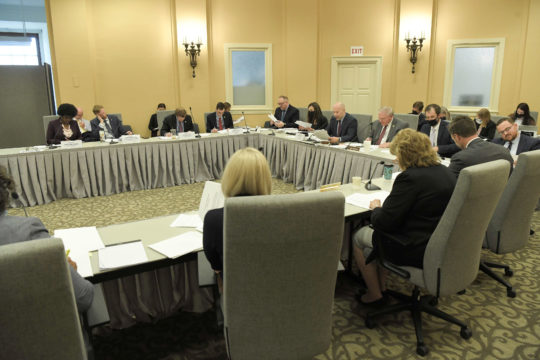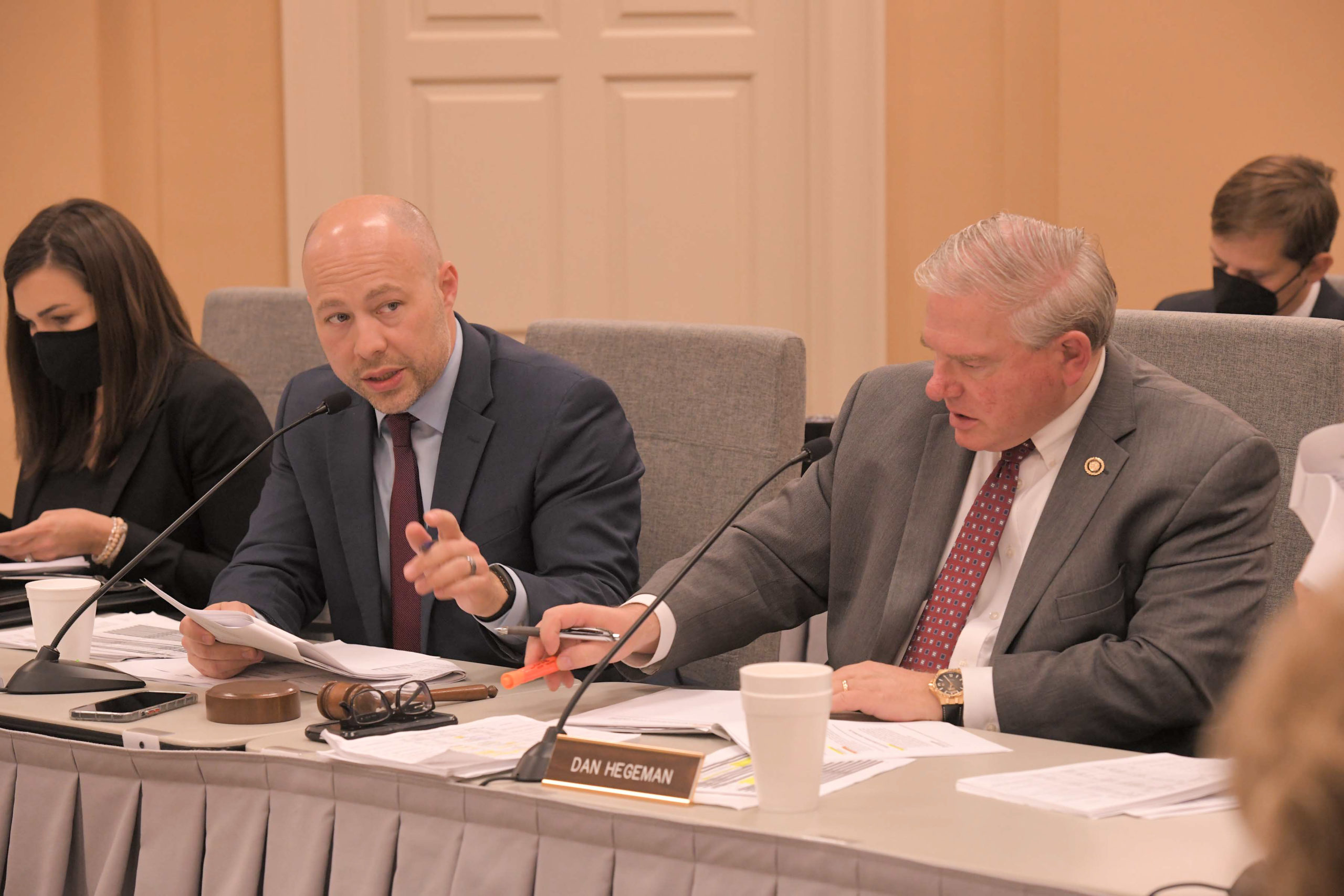JEFFERSON CITY, Mo. — The Conference Committee on Budget met for more than eight hours Wednesday to resolve the state budget ahead of this week’s deadline.
“Through this whole process there’s a lot of give and take — trying to get different things for different folks, trying to address all the needs of, from my standpoint, the senators,” Senate Appropriations Chair Dan Hegeman said. “This is a negotiation that we have; it’s not always the positions I would love to have, and certainly, it’s a back and forth.”
The committee began with the Department of Elementary and Secondary Education (DESE) budget. Concerns were raised early in the discussion over a $2 million line item funding public school improvements with several Democrats pointing to the Opportunity Trust in St. Louis as an unqualified recipient due to its handling of the struggling Normandy School District. Despite their objections and requests to vote on the measure, the fund went forward with the rest of the bill.
“I just would like to remind us all this is called a conference committee for a reason,” Rep. Ingrid Burnett said. “If the only purpose is to hear what you two chair people have come to and to agree to your decision, we get no opportunity to have a roll call and weigh in, what’s the point?”
Despite a contentious start, compromises soon followed; the House zeroed out the governor’s recommendation for the Child Care Block Grant while the Senate’s version funded it at 25 percent with $185 million. The compromise covered 5 percent of its funding.
A provision in HB 3 also led to consternation between members with a 3.7 percent increase in funding for Council on Public Higher Education (COPHE) affiliated schools while other institutions would be funded through different formulas and community colleges would share a $10 million increase. Members committed to addressing the mechanisms in the future, noting their hands were tied for the time being.

The committee also progressed through the Department of Transportation with another compromise made to alter language that would have allowed funding for once-daily train services, namely Amtrak’s Missouri River Runner traveling between Kansas City and St. Louis. A proposed one-trip limitation was removed to accommodate expected federal funds that would allow for two round trips per day.
The number of prosecuting attorneys in the Office of Public Defender would increase under the item approved by the committee, amounting to nearly $3 million. Members said the increase would help address an extensive backlog and increasing caseloads.
Another appropriation would revive the MORx Program which provided additional assistance to seniors struggling to afford medications. The program was replaced by the State Pharmacy Assistance Program, but representatives from the Department of Social Services told the committee the funds would cover the program as it was before without expanding coverage.
The Senate’s appropriation of $48 million to cover the state’s portion of overpaid unemployment benefits was approved despite concerns over funding a bipartisan push that has yet to pass the legislature. According to the Department of Labor, more than 46,000 Missourians received overpayments over the course of the pandemic.
The Department of Public Safety was also granted $1 million for the Pretrial Witness Protection Fund approved by the legislature last year, siding with the House’s recommendation.
The Senate passed its version of the $3.4 billion budget last week, making small tweaks to the House recommendations and voting down an attempt to fund Medicaid expansion. Friday is the last day for floor action on the package.

Cameron Gerber studied journalism at Lincoln University. Prior to Lincoln, he earned an associate’s degree from State Fair Community College. Cameron is a native of Eldon, Missouri.
Contact Cameron at cameron@themissouritimes.com.








































